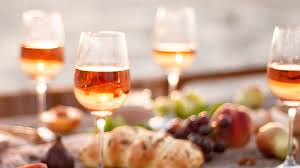Unlike high fashion or craft beer, points relocate a little slower in the white wine world. Over the previous years, however, orange white wine has gone from ancient as well as obscure, to hip insiders’ favored, to increasingly conventional. It is currently even offered by discount grocery store chains like Aldi.
To much better recognize the category, we caught up with Patrick Cournot, partner, and also sommelier at New York’s East Village white wine hangout, Brute. Cournot and also his team deal one of the biggest choices of orange wine in NYC and purpose to present the style to a wider target market.
“Orange wines are fashionable and a little naughty,” Cournot says. So Ruffian chose to group them with each other using marijuana metaphors. Their “sativas,” for instance, are acidic, fragrant wines, most likely to wake you up. The “indicas,” on the other hand, are smooth as well as laid back, while the “Dutch” is robust, strongly tannic, as well as commonly smoky.
Before the time pertains to select your preferred style, we’re going to answer all the inquiries you could have about orange wine, but were too ashamed to ask.
IS IT MADE FROM ORANGES?
“While there are a few rare drinks made from oranges, this is not what sommeliers are describing,” Cournot states. But he does obtain asked this inquiry a lot. Rather, the name describes the orange shade of red wines made from white grapes in an unconventional manner.
WHAT’S SO UNUSUAL ABOUT HOW IT’S MADE?
Orange wines are the product of vinifying white grapes the means red wine is usually made. As opposed to removing skins after grapes are pressed (as is typical for whites), the juice, called must, is fermented touching skins. “This shades the juice,” Cournot explains, “and also gives it [tannic] structure and also bitterness comparable to merlot.”
WHAT DOES IT TASTE LIKE?
Sampling tannins in white wines made with white grapes are unusual. Yet unlike a gripping Cabernet Sauvignon, as an example, the effect in orange wine is extra refined, like a highly brewed cold tea.
” Most orange wines taste like a bolder, extra mouthwatering variation of [glass of wines from] the same white grape,” Cournot says. Normally speaking, orange wines show “mild tastes of rock fruit, like peaches; tea flavors, like solid oolong; as well as an impression of honey, without really being pleasant.”
IS IT RELATED TO BLUE WINE?
Orange wine has nothing to do with (the abomination that is) blue wine. Blue wine is made from red and also white grapes and also acquires its striking unnatural color from the addition of anthocyanin and indigo pigments.
WHAT’S THE RIGHT TEMPERATURE TO DRINK OR SERVE ORANGE WINE?
As with all wines, the flavors in orange wines are subtler when cooled and also come to be a lot more meaningful as they warm up.
” [Orange wines] are best when they are somewhat warmer than a classic white and slightly cooler than a red,” Cournot says, “around 55 levels F.” It’s also perfectly appropriate to drink them slightly cooler, around 50 degrees, if it’s hot outside and you desire them to be extremely revitalizing.
CAN YOU PAIR ORANGE WINES WITH FOOD?
Orange glass of wines are strong and also intricate, yet you should not avoid matching them with food. They’re particularly wonderful at pairing with recipes whose tastes could much better match a white wine, Cournot states, but call for the fuller body of a red. “They’re also helpful for taking care of solid seasoning or nut flavor,” he claims.
” Orange wine goes with food from the Caucuses, Asia Minor, and also the Balkans,” Cournot says. “In most of those societies, specific recipes are seldom coupled with a glass of wines. Instead, a spread of dishes are served at the very same time, as well as multiple bottles will be positioned in the center of the table. These white wines can manage this large range of tastes well.”
IS ORANGE WINE A NEW INVENTION?
Though very much à la setting, the initial instances of an orange glass of wine showed up over 6,000 years back in the Caucasus area, in the area currently referred to as Georgia (the country, not the state).
IS ORANGE WINE THE SAME AS SKIN-CONTACT WINE?
All skin-contact glass of wines are not orange, but all orange white wines are made from skin contact.
Technically, the term skin call can be used to explain all merlots, as they are always fermented in contact with grape skins. However, the term is only usually related to describing a glass of wines used white grapes, where skin contact creates a noteworthy separation from the common design, such as orange white wine.


